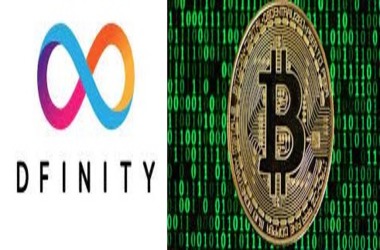
Bitcoin’s “Genesis Block” mined on January 3, 2009, was among the “greatest technical events” in recent times, according to an article. “Bitcoin exhibited the initial real-world usage for the unchangeable, verifiable, and tamper-proof ledger network dubbed as blockchain, preparing the ground for the growth of today’s cryptocurrency sector,” according to Bitcoin, which is now the world’s biggest cryptocurrency.
Ethereum then included smart contracts, and blockchain networks “became complete financial platforms that support sophisticated activities in a trustless fashion,” according to the post.
Programmers would “soon be able to design a range of dapps and DeFi applications that can naturally utilize BTC, unleashing huge value and propelling the acceptance of cryptocurrency and DeFi more into the public” if Bitcoin had powerful smart contracts.
The Internet Computer blockchain will possibly be able to facilitate “direct connectivity with the Bitcoin network by 1Q22 — and futuristic DeFi ventures such as Sonic, InfinitySwap, and ICPSwap are prepared to exploit the update,” as a significant move to that realism and goal.
The implementation ibs Chain Key encryption to build a safe, straight forward link with the Bitcoin database, rendering it “trustless” instead of dependent on a third-party, as stated in the medium post. “Programmers will be able to create new smart contracts that connect with the Bitcoin blockchain as a result of it though.”
Individuals keep their login details, and all credentials are “generated utilizing a multi-party script,” according to the upgrade. To “fetch blocks and transmit outbound trades,” a Bitcoin Adapter links to the Bitcoin public blockchain.
Canister smart contracts on the Internet Computer “essentially functions as Bitcoin wallets, with the power to accept, keep, and transmit BTC,” according to the article. The blog post also noted that canister smart contracts on the Internet Computer “effectively become Bitcoin wallets, with the ability to receive, hold, and send BTC.”
Max Chamberlin, CEO of InfinitySwap, said, “Dapps on the Bitcoin-linked Internet Computer network will have a significantly improved user effects as a result of Chain Key technology.” For illustration, on InfinitySwap, “users will be able to send BTC to a different Bitcoin address to join a liquidity stream. Other blockchains include more stages, centralized links, and require users to retain the core-layer currency as well. To join, a user just needs BTC.”
ICPSwap wants to make BTC the trade medium of choice. “The Internet Computer can assist the Bitcoin blockchain in achieving natively interoperable scalability as well as entice many Bitcoin coders to build DeFi apps for Bitcoin,” the ICPSwap team concluded. The Internet Computer can swiftly and cheaply retain and analysis the information provided by a substantial percentage of DeFi apps utilizing Bitcoin employing Chain Key cryptography.”
Smart contracts based on the Bitcoin blockchain would “deliver a dramatic transformation, enabling Bitcoin’s liquidity to migrate to a new facility for DeFi apps,” according to the statement. AMM DEXs utilizing BTC, and also Bitcoin-based lending and borrowing covenants, “are about to transform into a reality.”